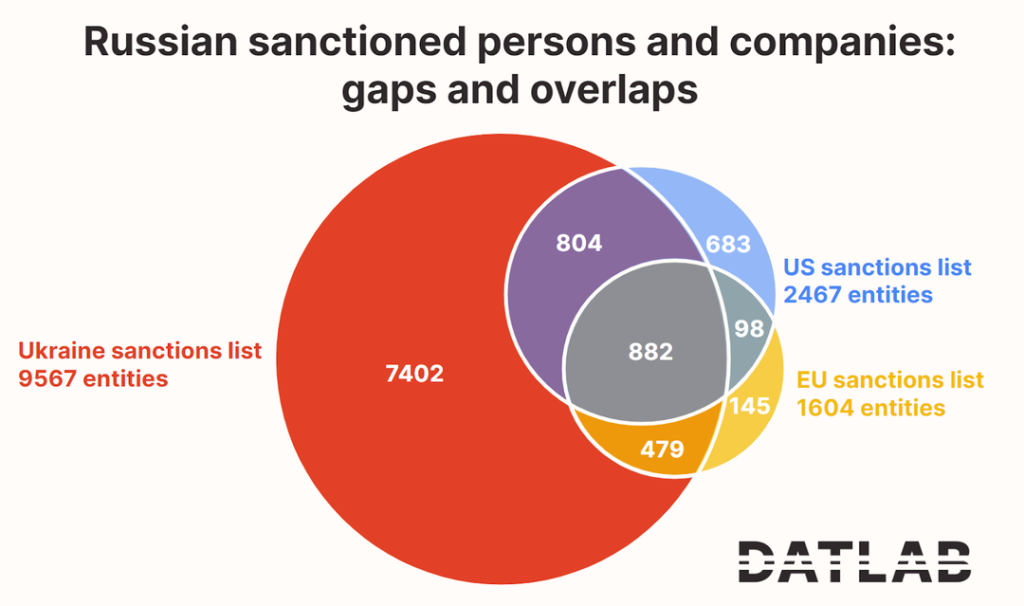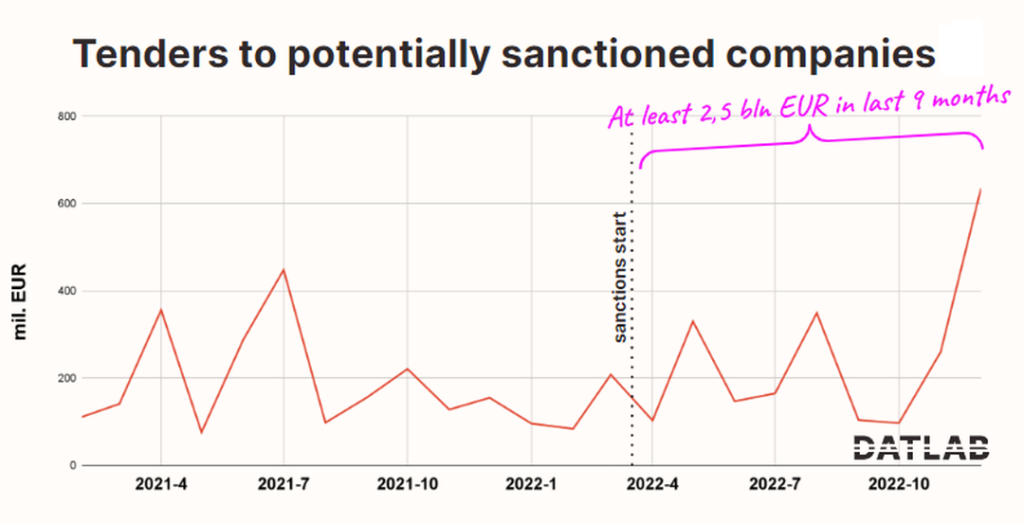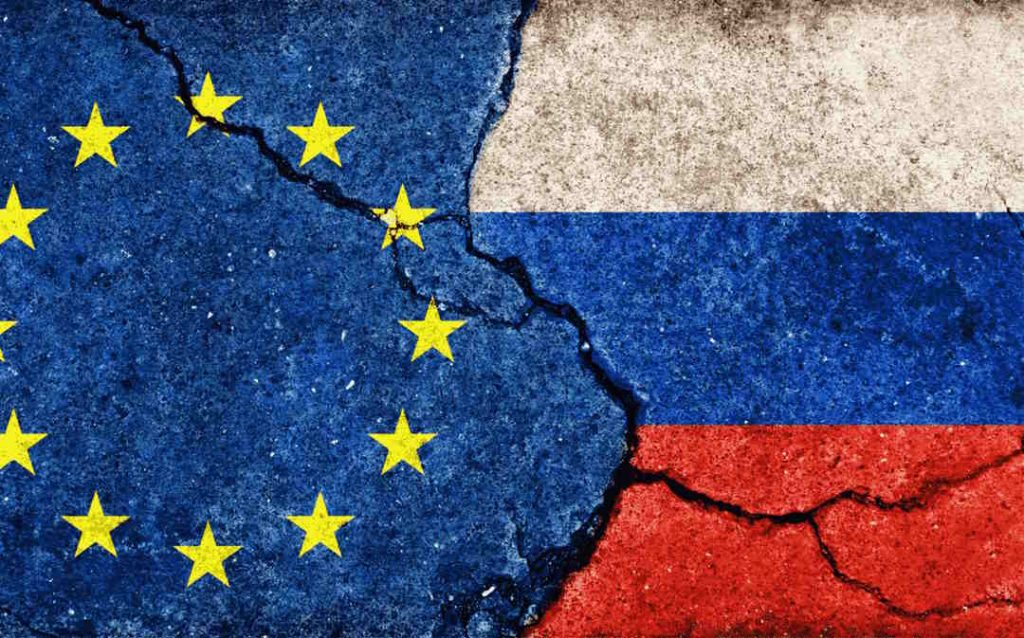The Czech research think tank Datlab discovered 30.092 additional companies managed from Russia in addition to 6.278 other entities linked to individuals on Navalny’s FBK (Anti-Corruption Foundation (ACF or FBK; Russian romanized: Fond borby s korruptsiyey (FBK)) list or sanctioned by other nations but not the EU. As a result, none of the EU’s 39.535 enterprises at least should be receiving any above-threshold public tenders.
The majority of enterprises in the procurement industry have eliminated connections to Russian corporations and/or sanctioned individuals from their visible ownership structures, but the minority has not. It is still unclear (and should be the focus of a comprehensive inquiry) whether the ownership links have truly been severed or have become so muddled that a potential buyer from the general public lacks the knowledge necessary to obstruct the corporation from bidding.
Ukraine’s leading in sanctioning individuals while the EU drags behind
Up till February 2023, Ukraine issued sanctions on 9.567 organizations and people; in other countries, this number was far lower, with the EU playing the most cautious role. We also looked at how national sanction lists inside the EU (France, Poland, Belgium, etc.) can help alleviate this, but none of the above nations added a substantial number of names to the EU list.

Image source: Datlab report
The 882 companies and people that the EU, USA, and UAE have all targeted (including members of the Russian State Duma) differ significantly from one another. Giving specific examples is not the goal of this work; instead, we want to make the point that by comparing different sanctions lists, we can find a helpful shortcut to successful sanctions targeting. As an illustration, consider the fact that 804 people and companies are sanctioned by the USA and Ukraine, but not the EU.
For instance, the Czech registry of beneficial owners only accurately lists 35% of sanctioned and Russian company owners.
Chains of businesses that conceal connections between reported owners and actual benefactors muddle the truth.
Some prominent people from the Kremlin establishment are still missing from EU sanctions lists. Deputy Prime Minister of Russia Yuri Trutnev and Russian energy and aluminum oligarch Viktor Vekselberg are two clear examples given by Datlab. Seven EU members have contracts with Vekselberg’s businesses.
Despite being on the lists of the US and Ukraine, Trutnev and Vekselberg are not subject to sanctions in the EU. Viktor Medvedchuk, a Ukrainian politician who supports the Kremlin, and Maria Lavrova, Sergei Lavrov’s wife also are unsanctioned for the moment.
Russian dummy companies or Russian-linked capital
A “dummy company” is a company that is set up to hide the true ownership or purpose of the business. It can also be referred to as a shell corporation, a front company, or a paper company. The way a dummy corporation operates is by having a setup that makes it challenging to identify the real owners or beneficiaries of the business. This can be accomplished by using nominee directors or shareholders who serve as a front for the real owners, as well as many layers of ownership.
For instance, just 35,5% of the suspected Russian-owned companies appear to have a legitimate entry in the Czech beneficiary ownership registry.
Since 2021, 242 companies associated with Russia or sanctioned individuals have received state contracts, according to data from Datlab. The rate at which these businesses obtain contracts appears to be stable in terms of volume and tender count, with regular random deviations around a long-term average of about 200 million EUR every month. We note that 2,5 billion euros were given to businesses with ties to Russia.

Image source: Datlab. The volume of contracts given to firms connected to sanctioned individuals or Russia demonstrates that the sanctions have had no significant effect
Additional analysis of the connections between the Russian/sanctioned person and the European daughter company. According to a Datlab estimate, 65% of these businesses had a connection to the sanctioned individuals indirectly through a network of at least two other businesses.

More than 65% of connections with high risk involve two or more businesses, and frequently two or more nations.
It is a complete disgrace that almost a year after the start of the war in Ukraine, Europe is still unable to successfully enforce the sanctions that were pompously placed on Russia. Controlling beneficiaries both inside and outside the European Union has always been a headache for the EU. Europe must implement the required remedies and establish a Europe-wide, open, and advanced artificial intelligence-controlled register of the final receivers of public funds. It will be able to tell whether billions of euros are being funneled to Russian oligarchs or whether fraudulent subsidy recipients are taking money from Europe.

